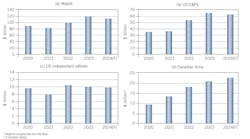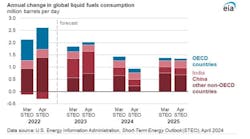Germany is in danger of increasing carbon emissions because of a proposal to shut down its nuclear power plants within the next 15 years, the International Energy Agency warned in a review of the country’s energy policy.
Germany’s energy policy is of critical importance within Europe and worldwide as it is the third largest economy among IEA members and is one of the largest energy markets in Europe.
IEA urged Germany to reconsider the policy because the country would be forced to rely on fossil fuels to plug its looming energy supply gap if it drops nuclear power as part of its energy mix. Nuclear power provides 12% of German’s energy and a quarter of its electricity generation. “Losing the nuclear option will have significant impacts on energy security, economic efficiency, and environmental sustainability,” IEA said. It would also reduce supply diversity and increase reliance on energy imports, “particularly natural gas, which is not diversified enough.”
Russia is the main gas supplier to Germany, but there are fears among European nations about the reliability of Russian deliveries, and the growing focus on cutting carbon emissions have positioned nuclear power as an attractive option in the energy mix.
In addition, Germany’s electricity and natural gas markets are dominated by large incumbent players, with E.ON and Wingas together supplying 66% of the gas market and E.On AG, RWE, EnBW, and Vattenfall owning 70% of Germany’s electricity capacity.
IEA said current legal unbundling rules are insufficient to address cross-ownership that could lead to large incumbents abusing their position and stifling competition. However Germany took an important reform step when it installed an energy market regulator, the Bundesnetzagentur, in 2005, and the country has made other important improvements over the past 5 years.
IEA recommended that the government introduce separate independent system operators to manage transportation assets so all markets are on an equal footing and to drive competition.
Although Germany is keen to address climate change within its energy policy, IEA urged that Germany rethink how it uses the European Union’s emissions trading scheme to protect and promote coal-fired power generation. “The feed-in tariffs provided to renewable electricity generation sources do not provide long-term signals to lower costs-incentives that would allow more renewables to be procured from the same pot of funds,” it said.

